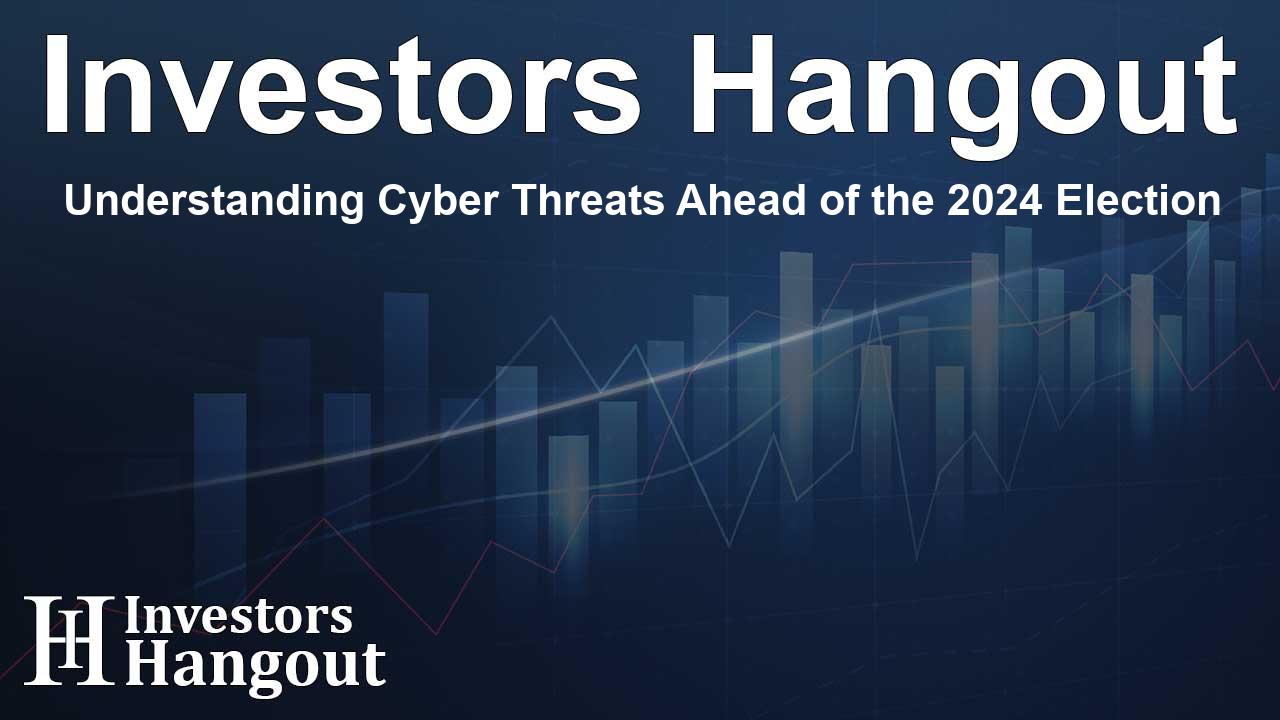Understanding Cyber Threats Ahead of the 2024 Election

Understanding Cyber Threats Ahead of the 2024 Election
As we approach a critical electoral period, the cybersecurity landscape is becoming increasingly concerning. The well-known cybersecurity firm Fortinet, Inc. (NASDAQ: FTNT) has released a significant report highlighting various cyber threats that could potentially undermine the integrity of the upcoming U.S. presidential election in 2024. The company has noted an alarming rise in cybercriminal activity tied to this pivotal event, implying that both voters and the electoral process itself are at risk.
Threats Identified by Fortinet
In its recent report, titled 'Threat Actors Targeting the 2024 U.S. Presidential Election,' Fortinet's FortiGuard Labs has unveiled disturbing patterns of cyber threats. They have observed various tactics employed by malicious actors who aim to manipulate voters and discredit the election process. The report serves as a crucial reminder of the need for vigilance as election day approaches.
Newly Registered Domains
One particularly alarming finding in the report is the identification of over 1,000 new domain names related to the election. These domains often incorporate terms that resonate with election-related themes, aiming to mislead users into believing they are accessing legitimate campaign resources. Such tactics can be detrimental to the public's perception of election security.
Phishing Kits for Political Figures
The report draws attention to various phishing kits being sold by cybercriminals. Notably, two kits are designed to impersonate high-profile candidates, each priced at approximately $1,260. The fact that these kits target prominent figures underscores how cyber threats are evolving, becoming more sophisticated and tailored to real-world events.
The Role of AI in Cyber Threats
AI technology has emerged as a double-edged sword, where it is not only used for beneficial purposes but also by malicious actors. The Fortinet report indicates that threat actors are increasingly utilizing AI-generated content as a method for disinformation. Accessible deepfake services can be found on dark web forums for as low as $15, enabling even amateur cybercriminals to participate in disinformation campaigns.
Ransomware Attacks Ahead of Elections
Ransomware attacks are another significant concern, particularly as elections approach. Fortinet's research has noted a sharp 28% increase in ransomware incidents targeting government entities in the lead-up to the 2024 election compared to the previous year. Such attacks could have a profound impact on the electoral process, threatening not only information security but also public trust in election outcomes.
Intensifying Cyber Espionage
The report sheds light on the ongoing cyber espionage activities by state-sponsored actors. It's noted that several countries, including China, Russia, and Iran, have been actively engaging in espionage that targets U.S. election systems. Fortinet anticipates that these actors will increase their efforts to disrupt or manipulate the electoral process, further complicating the political landscape.
Best Practices for Cybersecurity
In light of these threats, Fortinet emphasizes the importance of excellent cyber hygiene practices. Individuals and organizations are urged to employ multi-factor authentication, use strong passwords, and stay aware of suspicious online activities. Regular software updates are also crucial in defending against potential cyber risks.
Derek Manky, Fortinet's Chief Security Strategist, stresses that understanding and recognizing potential threats is essential. By preparing for these risks, citizens and organizations can better safeguard themselves against targeted cyberattacks that could significantly disrupt the electoral process.
Conclusion
As we move closer to the 2024 U.S. presidential election, staying informed about cybersecurity risks is vital. The threats posed by cybercriminals can impact not only individual voters but also the overall integrity of the election process. By adopting stronger cyber defenses and remaining vigilant, we can hope to protect the foundational ideals of democracy.
Frequently Asked Questions
What are the main threats identified by Fortinet for the 2024 election?
Fortinet has identified new phishing attempts, fraudulent domain registrations, and ransomware attacks as major threats that could affect the election's integrity.
How is AI being misused in the context of elections?
AI is increasingly used by threat actors to create deepfake content and other misleading information, complicating efforts to ensure accurate communication during elections.
What should individuals do to protect against cyber threats?
Fortinet recommends employing strong passwords, using multi-factor authentication, and remaining vigilant against suspicious activities online.
How does increased ransomware affect elections?
Increased ransomware attacks can disrupt government operations and erode public trust in election outcomes, impacting the overall electoral process.
What countries are involved in cyber espionage targeted at the U.S.?
Countries like China, Russia, Iran, and North Korea have been documented as active participants in cyber espionage efforts aimed at influencing U.S. elections.
About The Author
Contact Addison Perry privately here. Or send an email with ATTN: Addison Perry as the subject to contact@investorshangout.com.
About Investors Hangout
Investors Hangout is a leading online stock forum for financial discussion and learning, offering a wide range of free tools and resources. It draws in traders of all levels, who exchange market knowledge, investigate trading tactics, and keep an eye on industry developments in real time. Featuring financial articles, stock message boards, quotes, charts, company profiles, and live news updates. Through cooperative learning and a wealth of informational resources, it helps users from novices creating their first portfolios to experts honing their techniques. Join Investors Hangout today: https://investorshangout.com/
The content of this article is based on factual, publicly available information and does not represent legal, financial, or investment advice. Investors Hangout does not offer financial advice, and the author is not a licensed financial advisor. Consult a qualified advisor before making any financial or investment decisions based on this article. This article should not be considered advice to purchase, sell, or hold any securities or other investments. If any of the material provided here is inaccurate, please contact us for corrections.
